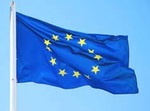London: A European privacy campaign group called noyb on Thursday filed a complaint against the EU Commission for unlawful micro-targeting on X (formerly Twitter) to allegedly promote its “heavily criticised chat control regulation”.
The privacy group has lodged a complaint against the EU Commission with the European Data Protection Supervisor (EDPS) and is currently assessing whether to lodge a complaint against Elon Musk-run X for enabling the illegal use of sensitive data for political micro-targeting.
The proposed EU regulation on chat control is one of the most controversial regulations in a long time and according to noyb, the fear is that the law could undermine all encrypted online communications – and open the door to mass surveillance.
Despite the heavy criticism, the negotiations are moving forward in Brussels, with the EU Commission pushing for a timely adoption.
According to the complaint, in September 2023, the Commission used unlawful micro-targeting on X to garner public support, which could be used to pressure national governments into accepting the controversial legislative proposal.
“The EU Commission has no legal basis to process sensitive data for targeted advertising on X. Nobody is above the law, and the EU Commission is no exception,” said Felix Mikolasch, data protection lawyer at noyb. Part of this seemingly aggressive attempt to promote the chat control was a targeted advertising campaign on X “to change public opinion”.
“While online advertising isn’t illegal per se, the EU Commission targeted users based on their political views and religious beliefs,” said noyb.
The EU Commission had previously raised concerns over the use of personal data for micro-targeting and described the practice as “a serious threat to a fair, democratic electoral process”.
“It is mind-boggling that the EU Commission doesn’t follow the law it helped to institutionalize just a few years ago. Moreover, X claims to prohibit the use of sensitive data for ad targeting, but doesn’t do anything to actually enforce this ban,” said Maartje de Graaf, data protection lawyer at noyb.
–IANS


Comments are closed.